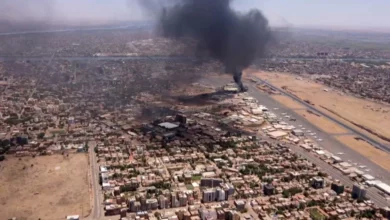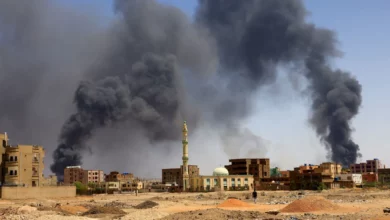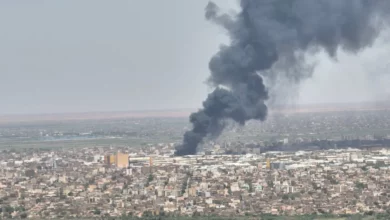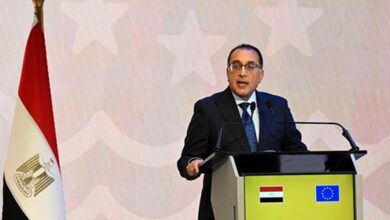Amid recent escalation in the war of words between northern and southern officials in Sudan’s ever-embattled political landscape, indicators suggest the country remains dismally ill prepared for the south Sudanese referendum slated to take place in less than three months.
The vote is a central component to the Comprehensive Peace Agreement (CPA) struck between officials in Khartoum and the southern rebel group, the Sudan People’s Liberation Movement (SPLM), in 2005. The agreement ended a more than two-decade-long conflict over race, religion, ideology and resources that claimed an estimated two million lives and displaced twice that.
If conducted in a free and fair way, the plebiscite is overwhelmingly expected to deliver full sovereignty to the south Sudanese.
The referendum will have important, albeit largely undetermined, impacts on Sudan but analysts also anticipate regional ramifications. Egypt, with an entrenched economic and resource-driven relationship with its southern neighbor, is poised to feel the reverberations of the poll.
On Tuesday, as reported by the Sudanese state news agency Suna, President Omar al-Bashir warned of a resumption of violence if outstanding disputes are not settled.
And in a sign of expectant violence, south Sudan president Salva Kiir last week urged UN Security Council envoys in Juba to set up a UN peacekeeping force along the border demarcation line.
The date of the independence poll–9 January–coincides with a vote in the oil rich Abyei border region on whether to join the north or south should the south side with secession. On Wednesday, according to reporting by Reuters, negotiations over the future of the region and its resources, held in Addis Ababa, were a failure.
Egyptian academics, alike most of the global community, are divided on many issues surrounding the vote. For starters, they are undecided on whether the vote will, in fact, be held on the designated date. And they’re split on the specter of conflict.
“The remaining period before holding the referendum is very short which legally and logically does not allow the completion of all necessary procedures,” said head of the African research unit at Al-Ahram Political and Strategic Studies Center Hani Raslan.
“The cancellation or postponement of the referendum would lead to serious crisis that could escalate again into civil war between the south and north.”
But others, like American University of Cairo (AUC) political science professor Ibrahim El Nur, predict a less than catastrophic fallout.
“I think the referendum will proceed because the feelings are very high on both sides. Also there is a lot of international pressure,” said El Nur. “The North and South are already tactically separate. The South has a state with an army and air force. What are left are just rituals.”
Jennifer Smith, from US-based Refugees International, visited Khartoum State, Sudan earlier this year in an effort to assess potential referendum-fueled humanitarian crises.
“What we worry about most is the increase in conflict around hot-spots along the border area,” Smith said from Washington, D.C. “We also worry about south-south violence, conflicts between different southerners, in the aftermath of the referendum.”
South Sudan is a largely rural region fragmented by ethnic division. Despite dismissing the prospect of pervasive violence, El Nur said southern internal strife is an issue.
“There is a very clear recipe for violence even without northerners conspiring to do so,” said El Nur. “This is over the dominance of Dinka in the ruling party of the South.”
South Sudan’s other major ethnic group–the Nuer–are grossly underrepresented in the ruling elite. The region is also crippled by a weak central government and abject under-development.
“Infrastructure in South Sudan is very minimal,” said Smith. "There is a severe lack of health facilities, a lack of educational facilities, and a lack of paved roads.”
Moreover, because of the historical combination of under-development and persistent war, an estimated three million southerners currently reside in the north.
“If the South voted for independence there might be the view among some northerners that ‘what are the southerners doing here? They should go home’,” explained Smith. “While some southerners living in Khartoum are still displaced and live in displacement camps, there are others who integrated into communities there. They’ve raised families and have lived there for decades. They really have very little ties to the south. “
Southern-led efforts to facilitate return for those southerners residing in the north have been largely poorly organized and inadequate. Refugees International, according to Smith, is concerned forced expulsion campaigns may spur a humanitarian crisis. She, however, noted there is no concrete evidence to suggest a campaign of this nature is on the agenda.
In this atmosphere of uncertainty Egypt is striving to preserve its interests in the region.
“The Egyptians are trying to play it safe maintaining good relations with Khartoum and Juba,” said AUC’s El Nur. “This is the only viable option.”
Egyptian officials have ostensibly pressed for unity but, in reality, Egypt has maintained an impartial stance toward the referendum, said El Nur. Egyptian President Hosni Mubarak made a historic trip to Juba in late 2008 in which he pledged Egyptian assistance in infrastructural development for the region.
“Egypt is already in south Sudan,” El Nur added. “They have their own embassy in Juba. They have direct diplomatic ties.”
According to experts, Egypt’s primary referendum-related concerns are economic and–the much publicized–future of Nile sharing. Instability poses a threat to Egypt in these isolated areas alone. Despite decades of near-perpetual warfare within Sudan, Egypt historically has only been nominally impacted.
Refugee issues constituted one visible and statistical form of that impact in the past. Resurgence of conflict in the mid 1980s precipitated a flood of refugees over Sudan’s northern border. But in recent years, south Sudanese face more stringent permanent re-settlement policies in Egypt. For this reason, the referendum is not expected to engender any refugee problems of magnitude for Egypt.
“There’s the feeling that the majority of the displaced will be internal,” said Refugee International’s Smith.
Egypt has a sizeable investment relationship with Sudan, but according to the Egypt State Information Service website, those projects are 99 percent “industry” and “services” affiliated.
“The major part of investment relations is concentrated in the north,” said Egyptian-Sudanese integration expert and journalist Usama Ghaith.
According to Ghaith, Egypt’s presence in the south has largely been in a state-sponsored, infrastructural assistance capacity. Despite the demand for development, feeble infrastructure and rural landscape render investment unprofitable, he added.
For this reason, Ghaith said Egyptian investment in South Sudan is insignificant and secession does not pose a dangerous impact.
“The Egyptian economy will not be immediately affected by any means with separation,” said Ghaith.
But experts do not expect this environment to persist forever.
“The question will be ‘Will the government in South Sudan be favorable to Egyptian interests?” asked Ghaith. “In the future, they will be able to provide advantages and incentives to investors.”
South Sudan boasts oil reserves and other natural resources running the gamut. And there is general consensus, that due to regional proximity and cultural and racial ties, south Sudan will elect to align itself away from the Arab World.
“East Africa will be the main beneficiary of South Sudan’s rich mineral resources such as crude oil, petroleum, gold, silver, iron and manganese, which are not well utilized,” said Raslan.
This prospect of alternate wholesale alignment fuses economic matters directly with Nile-sharing. In recent years, upstream riparian nations, led by Ethiopia, have pressed for reform to the Nile regional agreements initiated during the colonial era. Because the agreements were created under British rule, legitimacy is dubious.
Regardless, currently Egypt and Sudan claim rights over the vast majority of Nile flow.
“If Southern Sudan splits and becomes a separate state, you get one more state to negotiate with,” said water resource expert and visiting professor at Georgetown University’s Doha campus, Sharif Elmusa. “Egypt is trying to maintain a dialogue with the South, but the forces that want secession unfortunately use the Arab/African dichotomy to mobilize their supporters which means there might be a strong tendency for the new state to side with the other headwater states.”
The Jonglei canal project is one scenario which demonstrates both the precariousness of Nile projects in a region with an ever-imminent threat of violence and the unprecedented changing face of Nile joint ownership. Jonglei is a border region that formerly hosted an ambitious plan to canalize a swampy segment of the Nile. Years ago, the project’s development was disrupted by conflict and has yet to be completed. But El Nur said Egypt’s pursuit remains intact.
“By digging the canal, the Nile will save water,” said El Nur. “For South Sudan it will dry grazing and agricultural land. The benefits for Egypt and North Sudan are very clear.”
Currently stipulations over the canal project are murky and outstanding. El Nur, however, stresses reform of authority agreements over this project as vital to the viability of a South Sudanese independent state.
“If you’re going to have an independent state, the Jonglei agreement has to be re-negotiated between the three parties,” said El Nur. “There is no reason for them [the South Sudanese] to accept the [current] agreement.”




